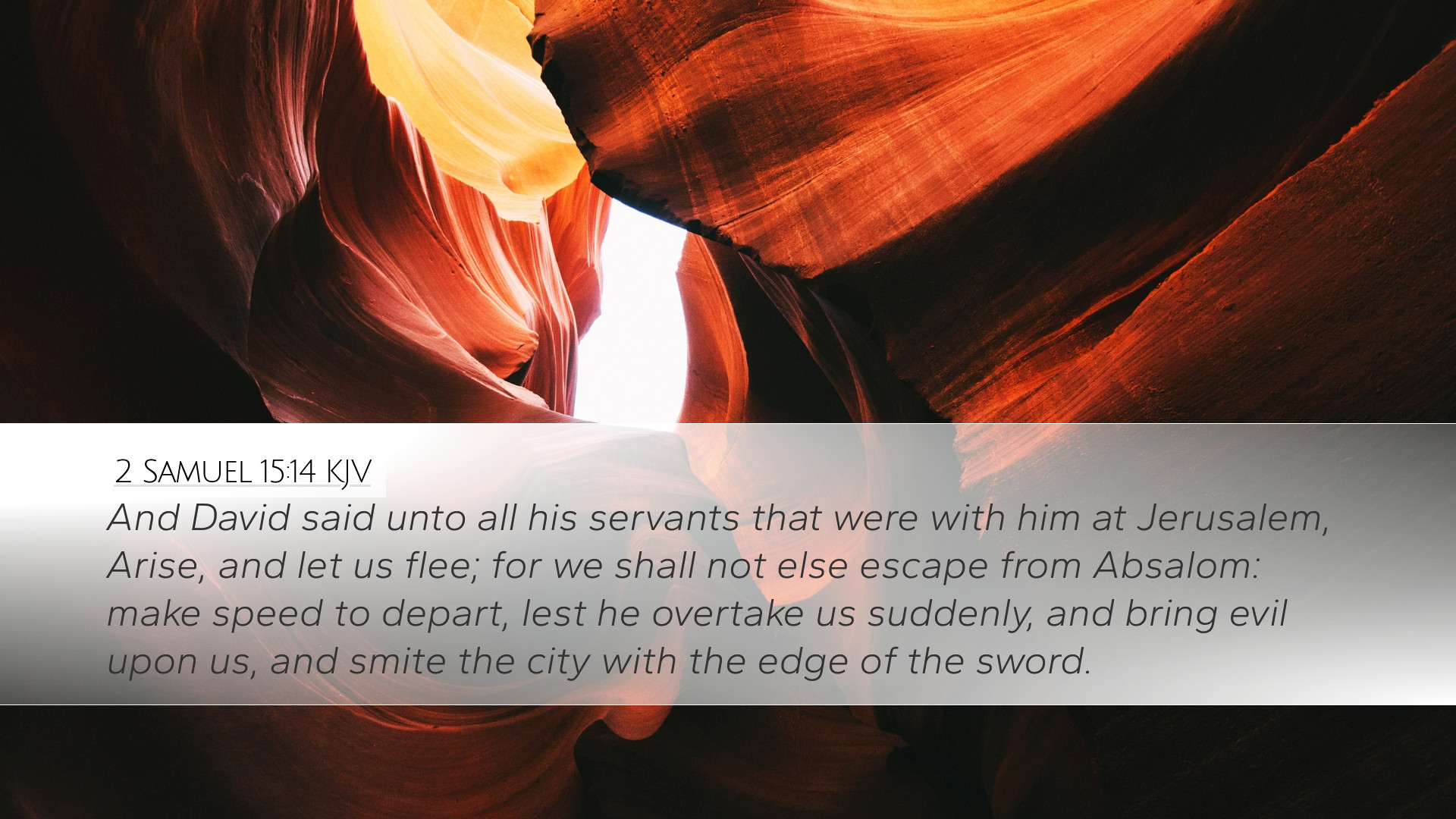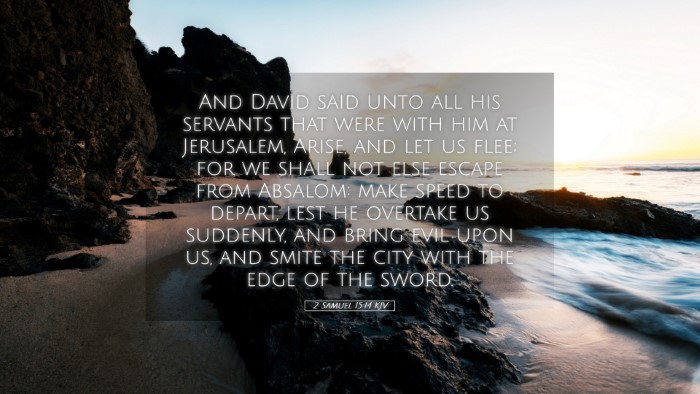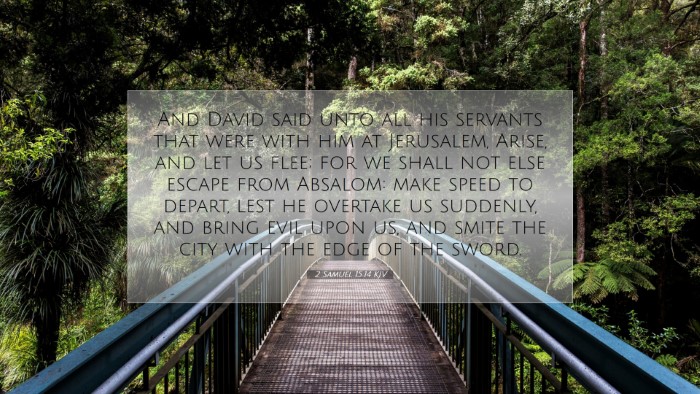Commentary on 2 Samuel 15:14
Verse Context: 2 Samuel 15:14 states, "And David said unto his servants, Arise, and let us flee; for we shall not otherwise escape from Absalom: make speed to depart, lest he overtake us suddenly, and bring evil upon us, and smite the city with the edge of the sword."
Overview
This verse is pivotal in the narrative of Absalom's rebellion against King David. The emotional and practical turmoil faced by David necessitates an understanding of the implications of his flight. Below, we will explore theological and practical insights drawn from public domain commentaries, including those by Matthew Henry, Albert Barnes, and Adam Clarke.
Historical Context
David’s decision to flee highlights the dire circumstances surrounding the kingdom. Absalom, David’s son, had gained significant support among the people and was seeking to usurp his father’s throne. The situation illustrates the complexity of familial relationships intertwined with political turmoil. David’s flight is not merely a personal crisis; it reflects a significant moment in Israel’s history.
Theological Insights
From a theological perspective, this verse reveals the contrast between divine judgment and human frailty. David’s acknowledgment of the need to flee is rooted in his understanding of God’s sovereignty yet reflects his human vulnerability.
- Divine Sovereignty: David's awareness of God's overarching control acts as a backdrop to his decisions, illustrating a belief that even in tragedy, God remains in command.
- Human Agency: His decision to escape suggests a recognition of human responsibility in times of crisis. David demonstrates a proactive approach to preserving life, indicating that trust in God does not preclude taking wise action.
Insights from Commentaries
Matthew Henry
Matthew Henry elaborates on the emotional burden carried by David, who, despite being a man of God, finds himself in a rapid decline from power. He notes that David's response to Absalom's rebellion was not merely reactive but a strategic acknowledgment of the seriousness of the threat. Henry remarks on David's instinct to protect not only himself but also the city of Jerusalem from potential destruction.
Albert Barnes
Albert Barnes focuses on the implications of David's flight. He posits that David’s decision was a calculated response to minimize harm and preserve the people of Jerusalem. Barnes emphasizes that David's leadership is characterized by concern for the welfare of his subjects, indicating a king's responsibility during perilous times. He also explores the broader theme of conflict between personal desires and public duty.
Adam Clarke
Adam Clarke offers a thorough analysis of the practical elements of the situation. He highlights the urgency in David's words, "make speed to depart," which suggests a fervent desire to escape impending danger. Clarke interprets this urgency as reflective of David's wisdom, noting that delay could lead to catastrophic consequences for both him and the city. Clarke’s commentary reminds readers of the urgency that often characterizes times of crisis.
Practical Applications
The commentary on 2 Samuel 15:14 serves as a reminder for pastors, theologians, and students regarding the complexities of human leadership under duress. Here are several applications:
- Leadership in Crisis: Reflect on how leaders respond to crises. David’s flight illustrates wisdom in seeking safety for oneself and one’s people, suggesting that in moments of turmoil, wise decisions are crucial.
- Balancing Faith and Action: This verse challenges believers to consider how faith and action intersect in stressful situations. Trusting God involves active engagement and not passivity.
- The Impact of Family Dynamics: David’s relationship with Absalom is a case study on the challenges posed by familial strife within leadership roles, offering rich material for discussion in pastoral care settings.
Conclusion
2 Samuel 15:14 encapsulates a moment of profound crisis for David and the nation of Israel. Through the insights derived from the commentaries of Matthew Henry, Albert Barnes, and Adam Clarke, we gain a comprehensive understanding of the intricate balance between human vulnerability and divine providence. Leaders are called to navigate these complex situations with wisdom and faith, demonstrating both reliance on God and proactive measures to protect their communities.


